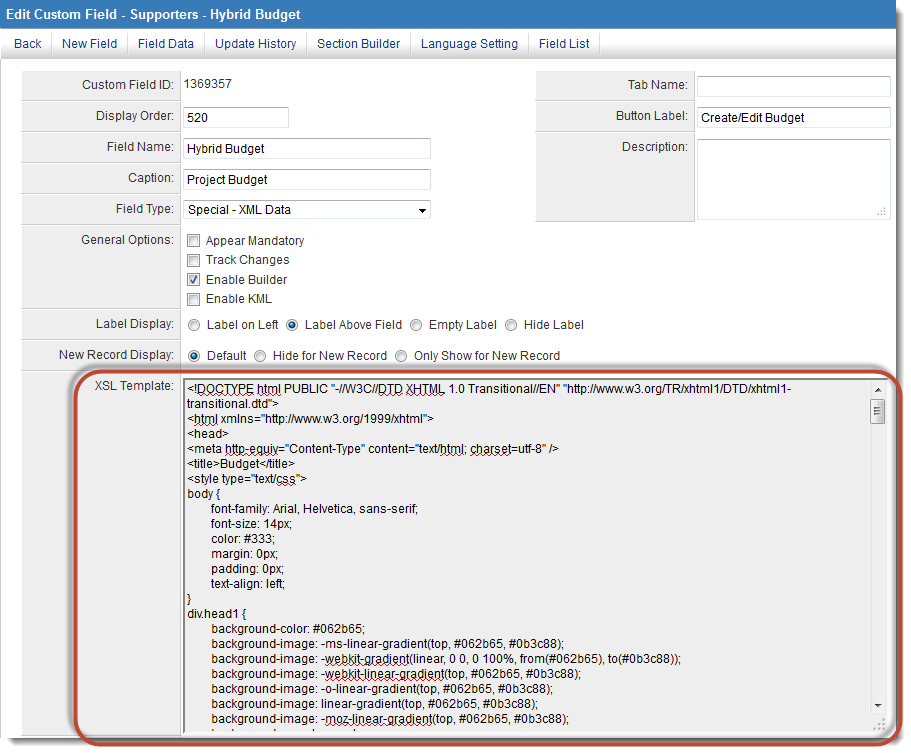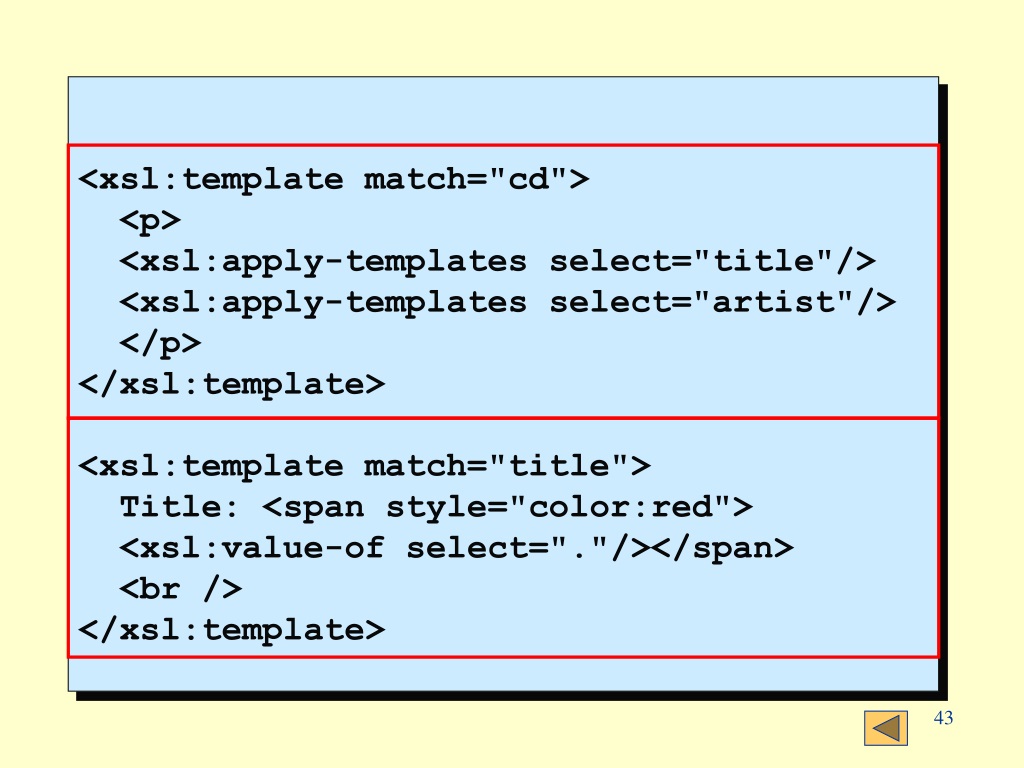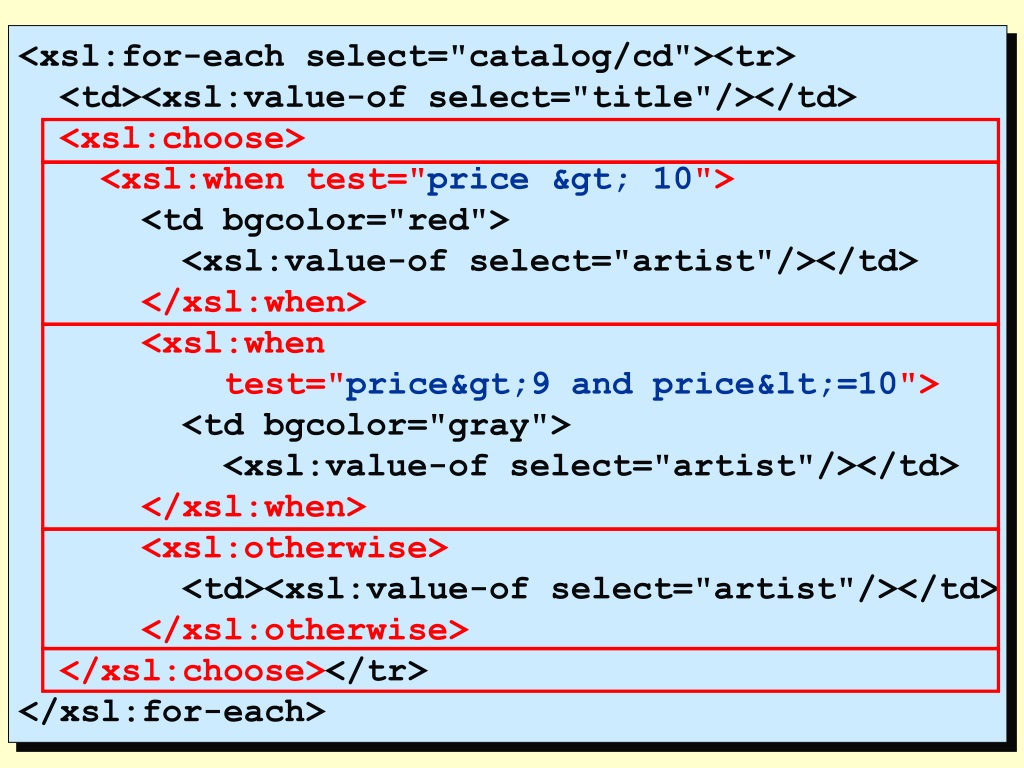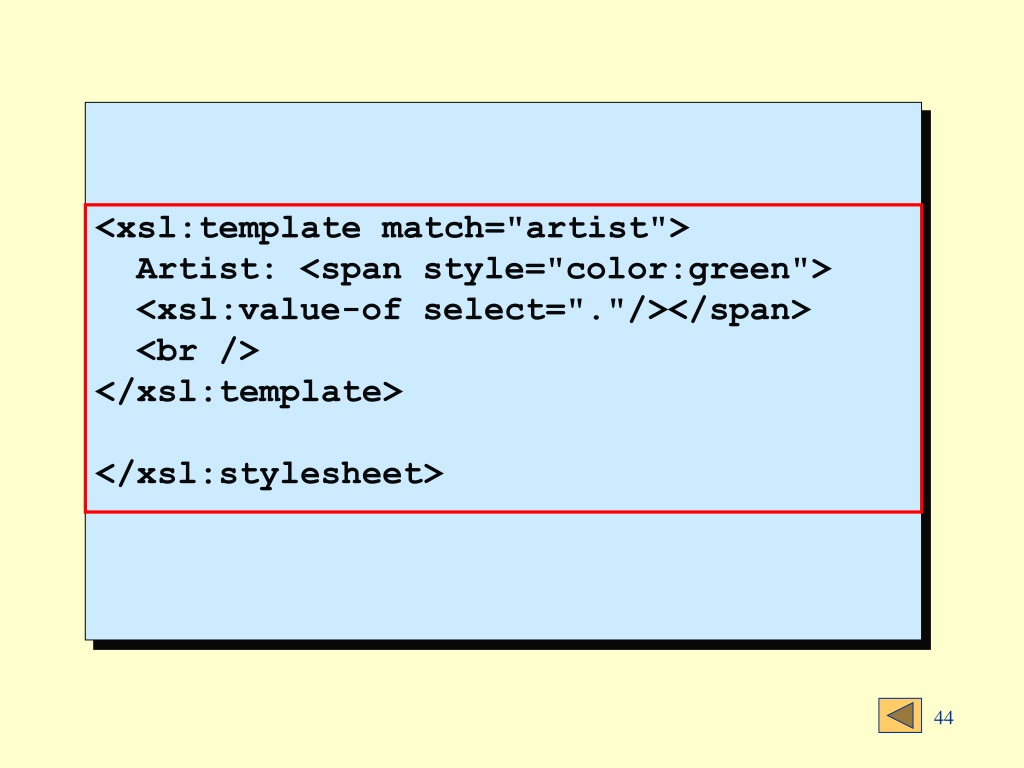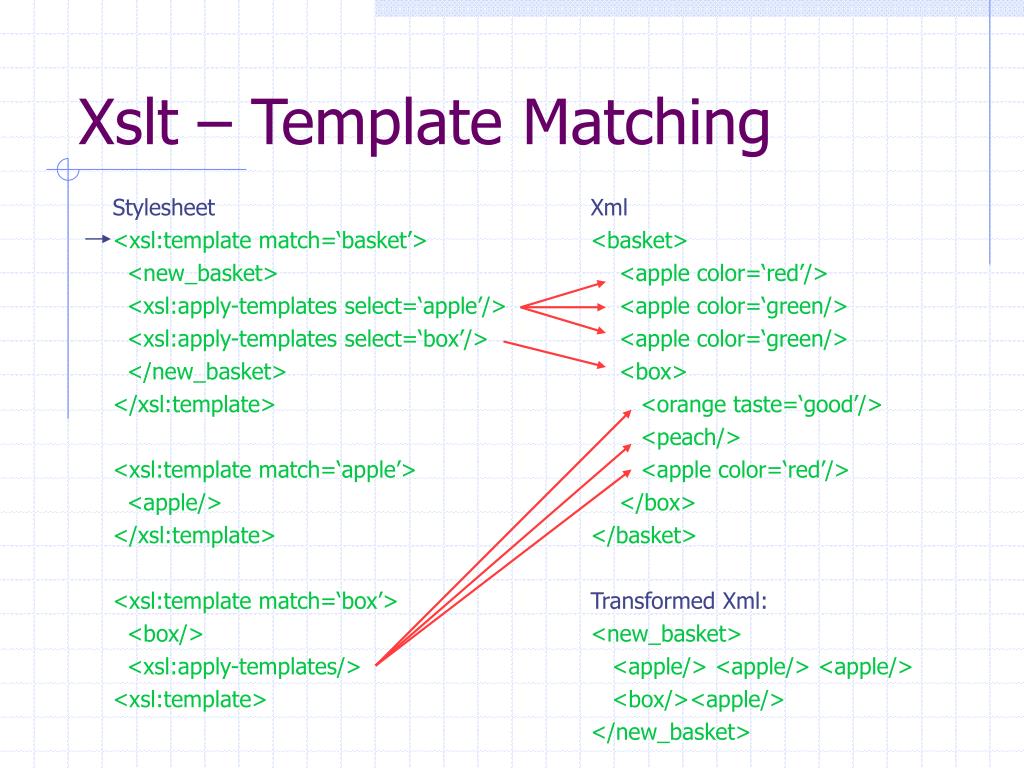Xsl Template Match
Xsl Template Match - Web <<strong>xsl:template match</strong>=pattern name=name mode=name priority=number> [optional] template. The match attribute can also be used to define a. Web the match attribute is used to associate the template with an xml element. The value of the match attribute of the <<strong>xsl:template</strong>> instruction must be a match pattern. To process from the root node, the template match rule is given as. Web <<strong>xsl:template match</strong>=/*> matches only the outermost element in the document, and sets the context to that. Web <<strong>xsl:template</strong>> english (us) <<strong>xsl:template</strong>> the <<strong>xsl:template</strong>> element defines an output producing template.
The match attribute can also be used to define a. Web <<strong>xsl:template</strong>> english (us) <<strong>xsl:template</strong>> the <<strong>xsl:template</strong>> element defines an output producing template. Web <<strong>xsl:template match</strong>=pattern name=name mode=name priority=number> [optional] template. Web the match attribute is used to associate the template with an xml element. The value of the match attribute of the <<strong>xsl:template</strong>> instruction must be a match pattern. To process from the root node, the template match rule is given as. Web <<strong>xsl:template match</strong>=/*> matches only the outermost element in the document, and sets the context to that.
Web <<strong>xsl:template</strong>> english (us) <<strong>xsl:template</strong>> the <<strong>xsl:template</strong>> element defines an output producing template. Web <<strong>xsl:template match</strong>=pattern name=name mode=name priority=number> [optional] template. To process from the root node, the template match rule is given as. Web <<strong>xsl:template match</strong>=/*> matches only the outermost element in the document, and sets the context to that. The match attribute can also be used to define a. The value of the match attribute of the <<strong>xsl:template</strong>> instruction must be a match pattern. Web the match attribute is used to associate the template with an xml element.
XSL Template SmartWiki
Web the match attribute is used to associate the template with an xml element. The match attribute can also be used to define a. Web <<strong>xsl:template</strong>> english (us) <<strong>xsl:template</strong>> the <<strong>xsl:template</strong>> element defines an output producing template. Web <<strong>xsl:template match</strong>=pattern name=name mode=name priority=number> [optional] template. To process from the root node, the template match rule is given as.
Xsl Template Match
Web the match attribute is used to associate the template with an xml element. The value of the match attribute of the <<strong>xsl:template</strong>> instruction must be a match pattern. The match attribute can also be used to define a. To process from the root node, the template match rule is given as. Web <<strong>xsl:template match</strong>=/*> matches only the outermost element.
PPT XSLT eXtensible Stylesheet Language Transformations PowerPoint
Web <<strong>xsl:template match</strong>=pattern name=name mode=name priority=number> [optional] template. Web <<strong>xsl:template match</strong>=/*> matches only the outermost element in the document, and sets the context to that. Web <<strong>xsl:template</strong>> english (us) <<strong>xsl:template</strong>> the <<strong>xsl:template</strong>> element defines an output producing template. To process from the root node, the template match rule is given as. The match attribute can also be used to define.
Xsl Template Match
The value of the match attribute of the <<strong>xsl:template</strong>> instruction must be a match pattern. The match attribute can also be used to define a. To process from the root node, the template match rule is given as. Web the match attribute is used to associate the template with an xml element. Web <<strong>xsl:template</strong>> english (us) <<strong>xsl:template</strong>> the <<strong>xsl:template</strong>> element.
PPT XSLT eXtensible Stylesheet Language Transformations PowerPoint
Web <<strong>xsl:template match</strong>=pattern name=name mode=name priority=number> [optional] template. The value of the match attribute of the <<strong>xsl:template</strong>> instruction must be a match pattern. Web <<strong>xsl:template match</strong>=/*> matches only the outermost element in the document, and sets the context to that. The match attribute can also be used to define a. Web <<strong>xsl:template</strong>> english (us) <<strong>xsl:template</strong>> the <<strong>xsl:template</strong>> element defines an.
[Solved] Regular Expressions in xsltemplate match 9to5Answer
The match attribute can also be used to define a. Web <<strong>xsl:template match</strong>=pattern name=name mode=name priority=number> [optional] template. Web <<strong>xsl:template match</strong>=/*> matches only the outermost element in the document, and sets the context to that. To process from the root node, the template match rule is given as. Web <<strong>xsl:template</strong>> english (us) <<strong>xsl:template</strong>> the <<strong>xsl:template</strong>> element defines an output producing.
PPT Xml, DTD, XPath, & Xslt PowerPoint Presentation, free download
Web <<strong>xsl:template match</strong>=/*> matches only the outermost element in the document, and sets the context to that. The match attribute can also be used to define a. To process from the root node, the template match rule is given as. The value of the match attribute of the <<strong>xsl:template</strong>> instruction must be a match pattern. Web <<strong>xsl:template</strong>> english (us) <<strong>xsl:template</strong>>.
[Solved] How can xslapplytemplates match only templates 9to5Answer
Web <<strong>xsl:template match</strong>=/*> matches only the outermost element in the document, and sets the context to that. Web <<strong>xsl:template match</strong>=pattern name=name mode=name priority=number> [optional] template. The value of the match attribute of the <<strong>xsl:template</strong>> instruction must be a match pattern. To process from the root node, the template match rule is given as. Web the match attribute is used to.
XSL templates demonstrating different matching expression s of XPath
To process from the root node, the template match rule is given as. Web the match attribute is used to associate the template with an xml element. Web <<strong>xsl:template</strong>> english (us) <<strong>xsl:template</strong>> the <<strong>xsl:template</strong>> element defines an output producing template. Web <<strong>xsl:template match</strong>=pattern name=name mode=name priority=number> [optional] template. The match attribute can also be used to define a.
Xsl Template Match
Web <<strong>xsl:template match</strong>=pattern name=name mode=name priority=number> [optional] template. To process from the root node, the template match rule is given as. The match attribute can also be used to define a. Web <<strong>xsl:template match</strong>=/*> matches only the outermost element in the document, and sets the context to that. The value of the match attribute of the <<strong>xsl:template</strong>> instruction must be.
Web <<Strong>Xsl:template</Strong>> English (Us) <<Strong>Xsl:template</Strong>> The <<Strong>Xsl:template</Strong>> Element Defines An Output Producing Template.
The value of the match attribute of the <<strong>xsl:template</strong>> instruction must be a match pattern. The match attribute can also be used to define a. To process from the root node, the template match rule is given as. Web <<strong>xsl:template match</strong>=pattern name=name mode=name priority=number> [optional] template.
Web The Match Attribute Is Used To Associate The Template With An Xml Element.
Web <xsl:template match=/*> matches only the outermost element in the document, and sets the context to that.
